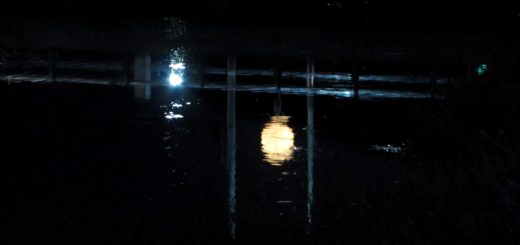RFK Jr.
Robert F. Kennedy Jr. appears to be the most serious, the most rhetorically eloquent, the most naturally curious, and the most well-read person to run for U.S. President in recent memory. On the rare occasions when I have heard him speak, the experience has been almost jarring. Here is a man running for elected office who can think on his feet, who expresses himself clearly and in detail on far-ranging topics without a teleprompter or handlers orchestrating his every word, and who stands unapologetically against established powers in the manner one always dreams of hearing in a modern statesman — the manner which guarantees that one has no hope of ever being elected.
However, I have a question, derived from some ideas and insights he discussed recently during a long-form interview with popular podcaster Lex Fridman, which you may watch in its entirety here:
Early in the conversation, asked by Fridman about his reading of Albert Camus, particularly The Myth of Sisyphus, Kennedy describes his appreciation for Camus’s perpective that life is absurd, and forever saddling humans with irreconcilable problems and impossible tasks, and thus that the only way to be free is to embrace the inescapability of the absurd, and to live, with all the rational insolubility that this entails: the inescapable dilemmas, the irreconcilable aims, the endless cycle of burdensome responsibilities that can never be completed.
Then he tells a story about how his father, RFK Sr., would challenge young Robert and his siblings with this thought: If you were in the position of having Anne Frank and her family knocking on your door, asking for your help, would you give them a place to hide? Or would you turn them away to protect yourself? Would you, in other words, to cite another image that RFK Jr. invokes in this connection, be one of those bystanders at the train station in Krakow or Berlin who saw people being loaded onto those trains, and knew what it meant, but lowered your head and walked by quickly, pretending you did not see, in a futile attempt to keep your conscience clean and deny the reality before you?
And then, a short time later in that same interview, RFK Jr. explains, with vigor and eloquence, how the United States ought not to be supporting Ukraine’s war of self-defense, but rather should be “making friends” with Vladimir Putin — whom he describes as a brutal killer and a poisoner of his opponents — because Putin has his hand on the button of the world’s largest nuclear arsenal, and has explicitly declared that there will be “no world without Russia,” by which, as RFK Jr. correctly observes, he clearly meant no world without himself, Vladimir Putin, as Russian leader. That is, Kennedy insists that his country, and the entire West, ought to accept those terms and seek to establish friendly relations with Putin’s Russia, even while he invades and annexes neighboring lands, because it is awfully dangerous to stand up to a man like Putin in these circumstances, when after all, the U.S. and NATO provoked him into attacking Ukraine, when they should have been forcing Ukraine to accept forced demilitarization, neutrality, and the gradual reduction of their government to a Putin puppet regime. America, Kennedy urges, ought to be seeking peace with Putin and trying to make the world a safer place for everybody, whatever the cost, since after all it is not, he says, “our responsibility” to fix Russia’s problems, to bring about regime change, or to save the Ukrainian people from his brutality, real though it is.
In other words, the people of the West ought to lower their heads, walk by quickly, and pretend they cannot see what is happening, or that it is “not our problem,” and just carry on making friends with Putin’s Russia, because that is the safe and self-protective thing to do.
So my question is, how does RFK Jr. reconcile these three points, namely (1) his acceptance of the Sisyphean fate (the happy embrace of the impossible task) as the very essence of freedom, (2) his moral injunction to be a person who would accept the risk of taking in the Frank family, rather than turn them away in the name of mere self-protection, and (3) his insistence that Vladimir Putin, though a morally unhinged tyrant who invades his neighbors, kills civilians without restraint, and threatens the world with nuclear annihilation as a means of imposing his will, should be palliated, excused, and even befriended as a means of preserving peace and safety at all costs?
From free-minded existentialist, to courageous citizen of intransigent conscience in the face of personal danger and tyranny, to Neville Chamberlain signing Czechoslovakia’s Sudetenland over to Hitler in the name of an undefined and unprincipled “peace,” all in the space of an hour.
I know that RFK Jr. is intelligent, well-read, and well-spoken. But I do not know what he is.



